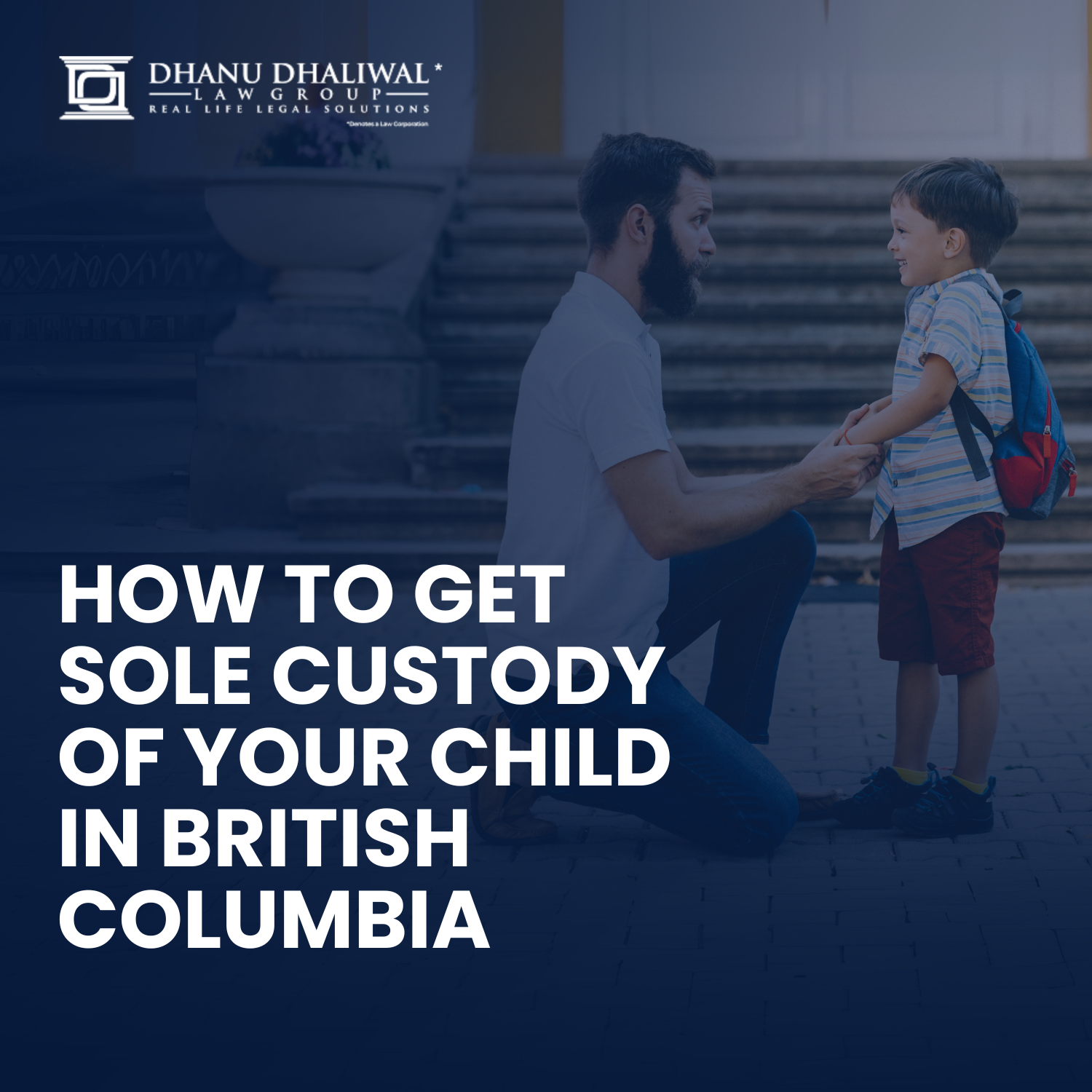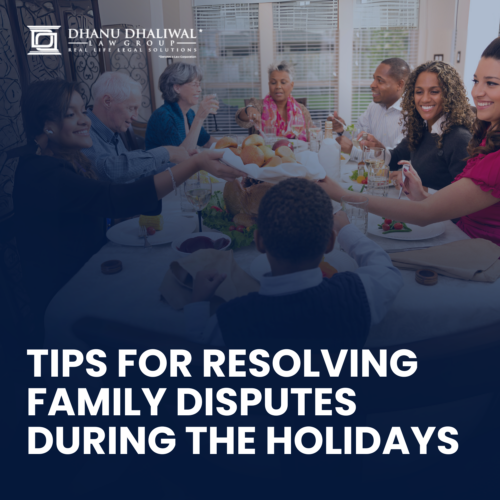Child custody issues are often among the most challenging aspects of separation and divorce, especially when parents disagree on what’s best for their children. While joint custody is the most common arrangement in British Columbia, there are cases where sole custody is necessary to protect a child’s best interests.
If you’re considering pursuing sole custody of your child in BC, this blog will guide you through the process, the grounds for sole custody, and what you’ll need to prove in court.
What Does Sole Custody Mean in British Columbia?
In BC, the term “custody” is not commonly used in family law. Instead, terms like “parenting time” and “parental responsibilities” describe the care and decision-making for children.
- Parenting Time: Refers to the time a child spends in the care of a parent.
- Parental Responsibilities: Involves the decision-making authority over important aspects of a child’s life, such as education, health care, and religious upbringing.
Sole custody means one parent has primary responsibility for the child’s care and decision-making, while the other parent may have limited or no contact. This arrangement is rare and typically granted only under specific circumstances.
Grounds for Sole Custody in BC
The Family Law Act in British Columbia prioritizes the best interests of the child when making custody decisions. Sole custody is considered only when shared custody is not practical or poses risks to the child. Grounds for sole custody may include:
- Parental Absence: If one parent is living in another country or has abandoned the child.
- Substance Abuse: A parent struggles with alcohol or drug addiction, posing a risk to the child.
- Abuse or Neglect: Evidence of physical, emotional, or sexual abuse by one parent.
- Mental or Physical Incapacity: A parent is unable to care for the child due to illness or disability.
- Parental Death: One parent is deceased.
- High-Conflict Situations: Ongoing disputes or alienating behavior make joint custody unworkable.
Steps to Apply for Sole Custody
If you believe sole custody is in your child’s best interests, here are the steps to take:
- Consult a Family Lawyer
Before filing for sole custody, speak with an experienced family lawyer. They can assess your situation, explain your rights, and guide you through the legal process. - Gather Evidence
To support your case, you’ll need strong evidence demonstrating why sole custody is necessary. This may include:- Documentation of abuse, neglect, or abandonment.
- Records of substance abuse or criminal activity.
- Testimonies from teachers, doctors, or counselors.
- File an Application with the Court
You can apply for sole custody through the BC Supreme Court or a provincial court. This application should clearly outline why sole custody is in your child’s best interests. - Attend Mediation or Hearings
The court may require mediation to explore the possibility of resolving custody disputes outside of court. If mediation fails, the case will proceed to a hearing or trial. - Demonstrate Your Capability as a Parent
The court will assess your ability to provide a stable, supportive, and nurturing environment for your child. Highlight your role as the primary caregiver and your plans to meet your child’s emotional, educational, and health needs.
What Must Be Proven for Sole Custody?
To succeed in a sole custody application, you must convince the court that this arrangement serves the best interests of your child better than shared custody. Factors the court will consider include:
- Your Parenting Abilities: Demonstrate that you are a capable and responsible parent.
- Stability and Routine: Show how you can provide a stable home and consistent routine.
- Child’s Preference: For older children, their opinion may carry significant weight.
- Other Parent’s Inability to Co-Parent: Evidence of unfitness, such as neglect, abuse, or addiction.
Rights and Responsibilities of Sole Custody
If you are awarded sole custody, you will have exclusive authority over key decisions affecting your child’s life, including:
- Where they live.
- Educational choices.
- Medical and dental care.
- Religious or cultural upbringing.
- Applying for passports or licenses on their behalf.
You will also have primary responsibility for the day-to-day care of your child, ensuring their emotional and physical needs are met.
When to Apply for Sole Custody
Timing is crucial when seeking sole custody. Here are common scenarios when sole custody applications may arise:
- Immediately After Separation: If one parent has abandoned the family or poses immediate risks to the child’s safety, apply for sole custody right away.
- Following Changes in Circumstances: If a shared custody arrangement becomes unworkable due to abuse, addiction, or alienation, you can request a modification.
- Temporary Custody Orders: In urgent situations, courts may grant interim custody until a final decision is made.
Challenges of Seeking Sole Custody
Pursuing sole custody is not an easy process. Courts in BC generally prefer arrangements where both parents remain involved in a child’s life. Be prepared for potential challenges, including:
- High Burden of Proof: You must provide compelling evidence to justify sole custody.
- Emotional Stress: Custody battles can be draining for both parents and children.
- Legal Complexity: Navigating family law requires expertise and preparation.
A skilled family lawyer can help you overcome these challenges and present a strong case.
Why Legal Support Matters
Navigating the complexities of custody law in BC can be overwhelming, especially during emotionally charged situations. Seeking legal advice ensures that your rights and your child’s best interests are protected throughout the process.
At Dhanu Dhaliwal Law Group, our family law experts are here to provide compassionate and effective representation. Whether you’re seeking sole custody or need assistance with a custody dispute, we will guide you every step of the way.
Conclusion
Obtaining sole custody of your child in British Columbia is challenging but possible in situations where shared custody is not in the child’s best interests. By understanding the legal process, gathering evidence, and working with an experienced family lawyer, you can take steps to protect your child’s well-being and secure a brighter future.
Contact Dhanu Dhaliwal Law Group today to schedule a consultation and learn how we can help you with your custody case.
For personalized legal advice, reach out to our offices in Abbotsford, Surrey, or Vancouver. Your family’s future is our priority.






